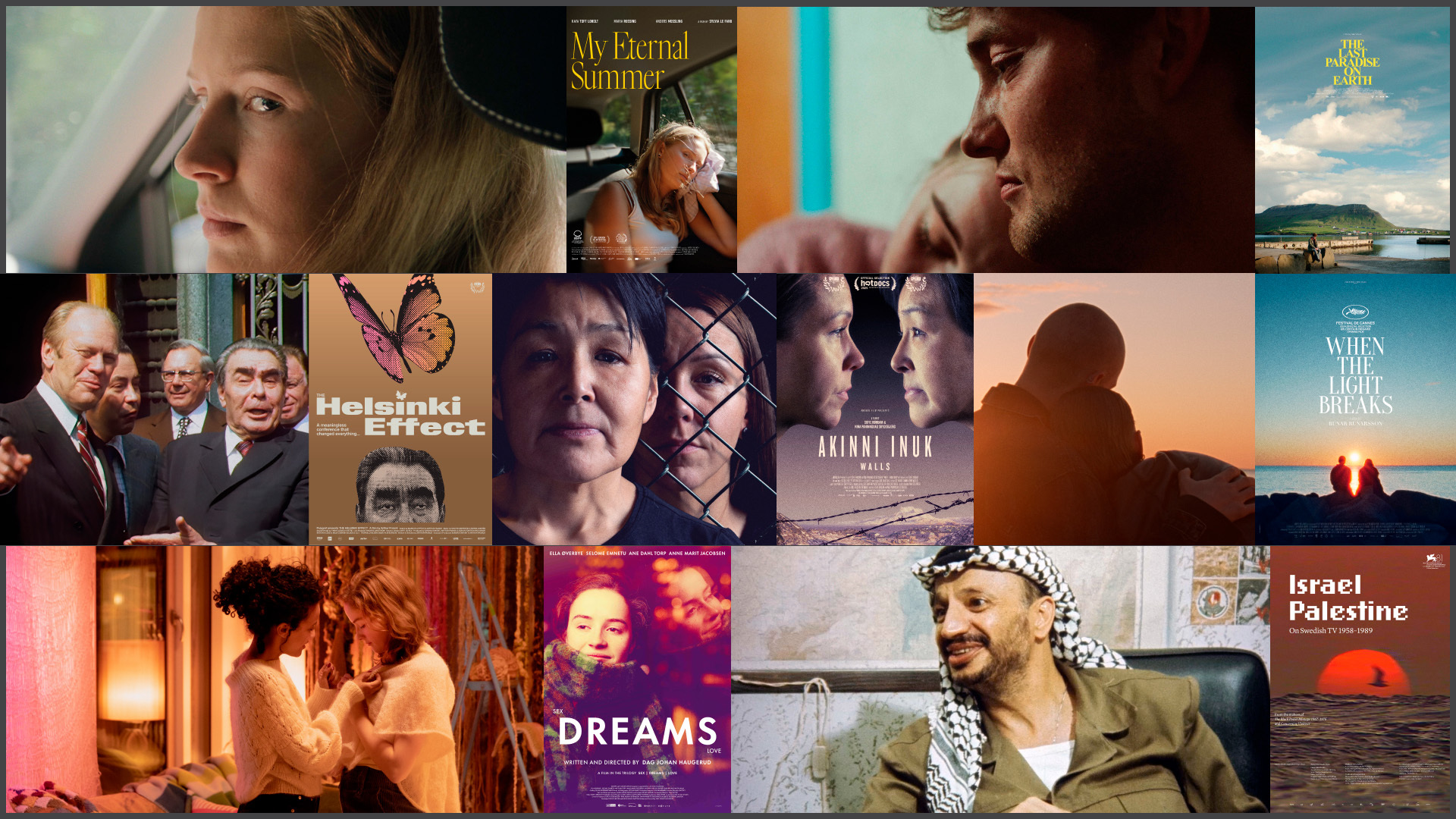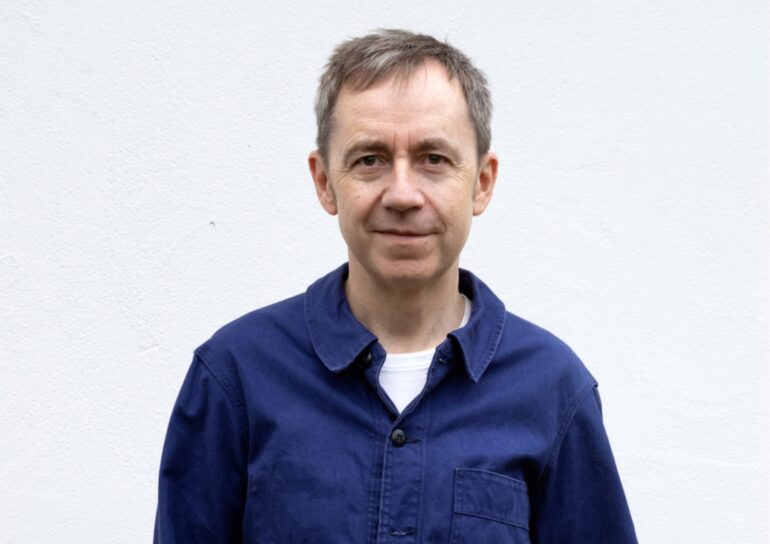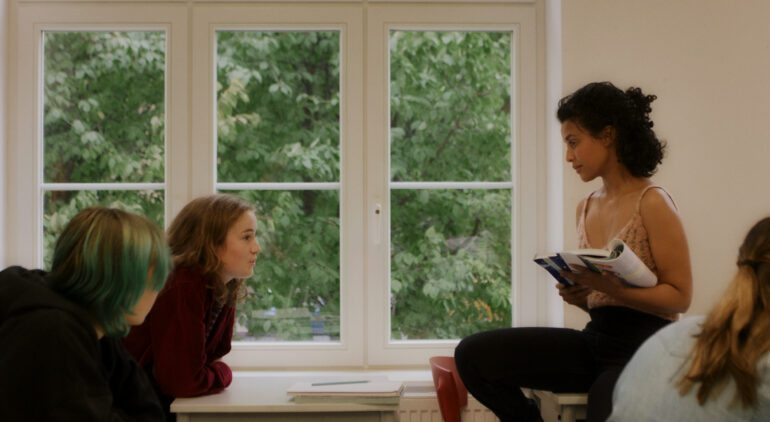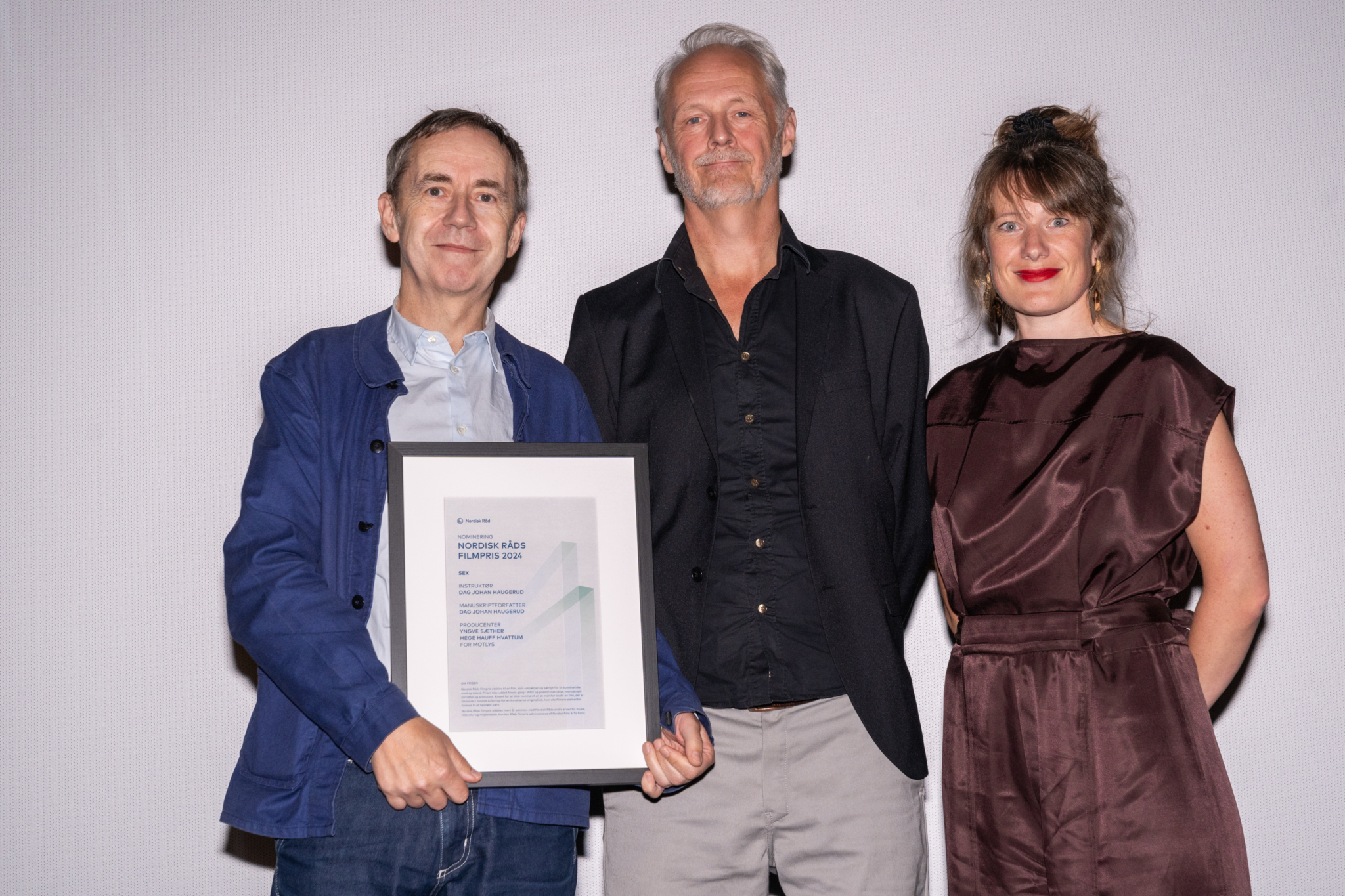
WRITTEN BY: Lina Nystrand
Writer-director Dag Johan Haugerud positions Dreams in his film trilogy, and says it is based on his own memory of falling in love for the first time.
The Norwegian writer-director Dag Johan Haugerud and the producers Yngve Sæther and Hege Hauff Hvattum are nominated by the Norwegian jury for the Nordic Council Film Prize 2025 for their feature film Dreams (Drømmer).
Dreams, the second film in Haugerud’s trilogy Sex Dreams Love (Sex Drømmer Kjærlighet), explores the overwhelming and confusing emotions of 16-year-old Johanne (Ella Øverbye) as she falls head over heels in love with her teacher Johanna (Selome Emnetu). It’s her first ever crush, and in an attempt to preserve the feeling, she writes everything down in a diary. When her mother and grandmother read the diary, they are initially shocked by the intimate details, but soon become captivated by the literary qualities of Johanne’s writing. As they start considering publishing the diary as a book, the question of what truly happened between Johanne and Johanna arises.
Dag Johan Haugerud is a librarian, novelist, screenwriter and film director who is recognised among audiences both nationally and internationally for his films Beware of Children (Barn), The Light from the Chocolate Factory (Lyset fra sjokoladefabrikken), Sex, and Love (Kjærlighet). Dreams is produced by Motlys.
In this dialogue series, we interview the directors of the seven nominated films. CLICK HERE to see all the nominees.
Dag Johan Haugerud, what was your first impulse to make the triology / this film?
One of the things that attracted me to making a trilogy was the chance of working with many different actors. Most of them I had worked with before, and Ella Øverbye was one of them. We collaborated on Barn (Beware of Children). She was only ten then, but it was a very nice collaboration. I believe in developing longer working relationships with actors. You get to know each other, you build trust, and you’re (hopefully) not afraid to challenge each other. It also makes the writing more inspiring if I know who is going to play the character. At least it does to me. So I knew I wanted to work with Ella again, and since she had become a teenager by the time we started on the trilogy, it made sense to write about sexual awakening and first love.
Last year, the first film in your trilogy, Sex, won the Nordic Council Film Prize, and now its second film is nominated. How would you describe Dreams as part of the trilogy’s overall theme?
All three films touch upon the same subjects, but in different ways, it’s about love and sexuality and longing (what you’re dreaming of). Sex deals with the questions that arise in a solid, monogamous relationship, and Love is about challenges concerning care and responsibility in a more fluid relationship. But everything starts by discovering your own sexuality, which eventually leads to a consciousness of attraction which again leads to falling in love. From that point on, your sexuality and love life is in constant development. It continues more or less for the rest of your life. So it made sense that one of the films should be about that very beginning, but also about the middle (the mother) and the end (the grandmother).
You both write and direct your films, how is the writer in you discussing with the director?
The writer takes over. Language is important to me, both phrasing and pronunciation, and I tend to work a lot with both when writing and when working with the actors. Since the action in these films is very much based on the nuances in the conversation, it’s necessary to be as concerned as you can about the possibilities and qualities and different meanings that exist in the spoken word.
Male creators sometimes get criticised when portraying women. What was your journey like into Johanne’s head and her way of narrating her story?
The film is totally subjective. All you see and hear is sifted through Johanne’s mind, and since I’m not a sixteen year old girl anymore, I didn’t think it would be proper to pretend to be one either. So everything in the script is based on myself as I am right now, and also of my memories of falling in love for the first time. It’s an overwhelming feeling, being in love, and I’m sure the experience differs from person to person. But I think the differences are more about personality and not so much about sex or gender. Anyway, I wrote it, based on myself, and showed it to Ella, who corrected some words and phrasings she thought were a bit old fashioned, but overall she recognised her own feelings in the script, and thought it was very much on point.
What theme(s) became most important to you during the process?
In Dreams, it’s probably the part about the grandmother, and her longing for love and sexuality in the later part of life. I have also been thinking a lot about what writing means. When you write about your life, you are in a way editing it. And editing often means narrowing it down. Life is chaotic and contradictory and doesn’t really lend itself that easily to storytelling. The truth always lies elsewhere. So that is something I will keep thinking about and maybe write about.
How would you describe the current state of the film industry in Norway?
Right now, you could describe it from both ends of the scale, both as a success and also as an industry in trouble. Right after COVID, the production level peaked. It was hard to find crews, because everyone had a lot of work and work offers. But that has changed. The number of films being made has been more or less the same for the last ten years. But the amount of TV series has sunk. Consequently, there’s far too little opportunity for work, and a high level of unemployment.
Official trailer:
CLICK HERE to read the jury's motivation for Dreams.
All nominated films for the Nordic Council Film Prize 2025 was screened during the following events:
- 05-07.09 at Bio Skandia by Stockholm International Film Festival.
- 17.09-20.09 during Nuuk International Film Festival.
- 18.09-22.09 at Bíó Paradís in Iceland.
- 19.09-26.09 during Helsinki International Film Festival.
- 02.10-05.10 at Øst for Paradis during Aarhus Film Days.



